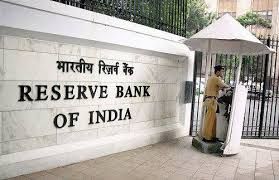 In the absence of a good bankruptcy code in India, Reserve Bank is working on a system to enable entrepreneurs seeking to exit insolvent business, a top official of the apex bank said.
In the absence of a good bankruptcy code in India, Reserve Bank is working on a system to enable entrepreneurs seeking to exit insolvent business, a top official of the apex bank said.
"We have a tendency in India that we do not like failures. “We think everybody should pass and have distinction. “We do not have a culture to accept failures.
"How to create that? There is a thinking in Reserve Bank, we have been thinking how to create a system so that people should voluntarily withdraw from an unattractive business," RBI Executive Director B Mahapatra said in his address on ‘Managing Stressed Assets’ organised by Assocham.
He said it is felt there has to be a good bankruptcy system in India.
Mahapatra said RBI has started working on an enabling system for banks that will help those entrepreneurs seeking an honourable exit from unattractive ventures.
He said here in India the bankruptcy has a stigma attached as, "Nobody wants to be called a bankrupt person. . . Indian philosophy is that we do not like failures".
Mahapatra said RBI has just begun working on such a framework to enable companies a voluntary withdrawal.
While there is a talk of providing legal provision in the Companies Act in this regard, but the RBI would like to work on examining the regulatory framework for the voluntary
Pointing to the problem of bad loans, he said, it is a known fact that the problem of stressed asset is there.
And particularly in the cases of public sector banks, the problem is more worrisome, though the private sector lender have fared much better.
"Reserve Bank has now provided a system of incentives and disincentives for following rules of the game for Corporate Debt Restructuring."
The problem of stressed assets earlier was in traditional sectors such as iron and steel, fertilisers etc but of late it is in infrastructure, he said.
Mohapatra felt that the stressed assets could also be revived.
To identify the stressed assets, RBI has established a Credit Central Repository of Information.
It ensures that if a large borrower defaults with one bank, the information about the same is passed on to the other banks on quarterly basis, he said.
Chairman and Managing Director of Indian Overseas Bank, M Narendra, who was also present, said presently revival of the economy is the most important focus and that there is also a continuous necessity of foreign direct investment.
He said there is a need for more investment from the private sector which has not come to the desirable level, as the government alone could not do it.
"Demand is there but capacity is not fully geared up.
“We need to really improve the infrastructure," Narendra said.











 © 2025
© 2025